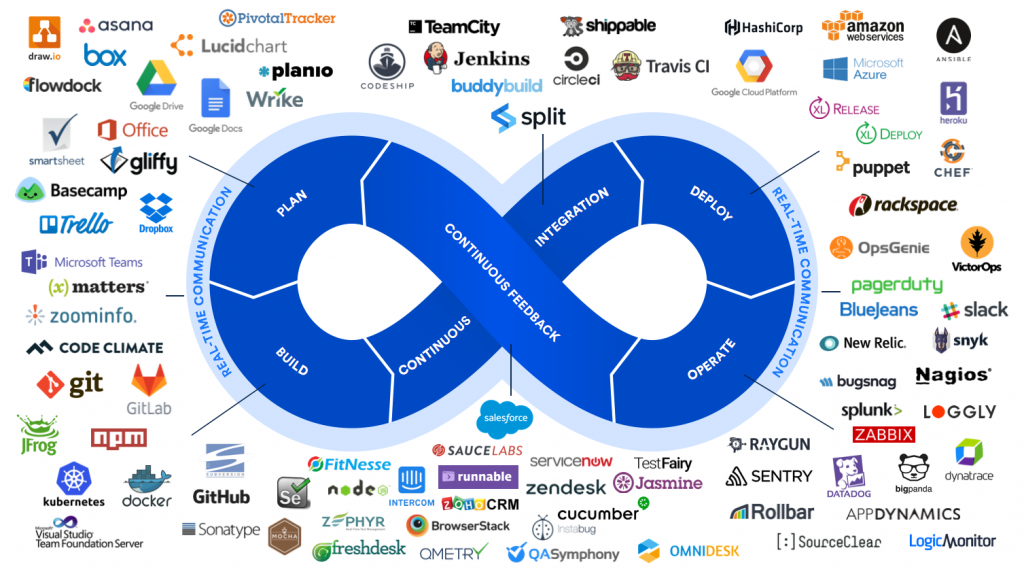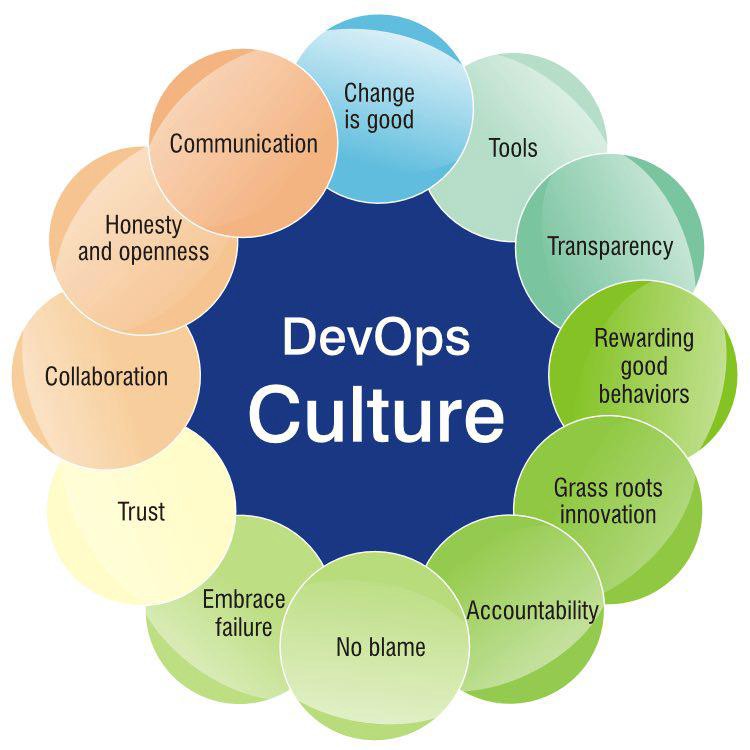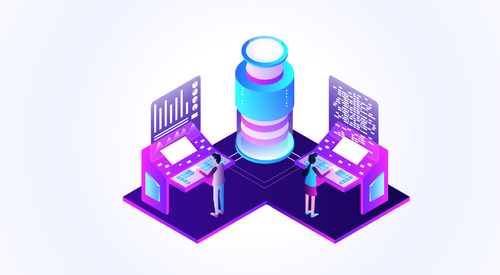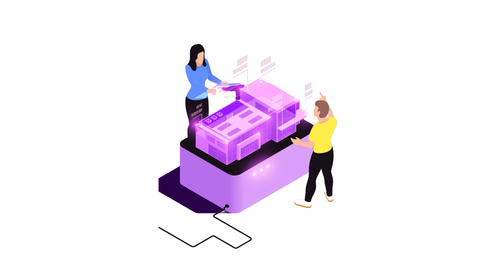

There are too many tools to implement DevOps culture in your organization, Is DevOps all about selecting and implementing these tools to automate the workflow ?
And what about the Organization Structure ? Should we have a seperate DevOps team to implement such pipelines ?

Well, DevOps is not just about implementing the required tools, It is more about developing a culture.
DevOps aims at creating a culture where Developers are empowered to perform automated testing ,Deployment and Monitoring of the Application in the Staging as well as Production environment
In traditional development,
The role of the developers was to develop the code for the Application and throw it across the wall to the Operations team The DevOps culture removes this barriers with easy flow of communication and collaboration for better and faster releases.
Selecting and Implementing the DevOps tools are the necessary steps to implement the DevOps Culture but, Just implementing DevOps tools won’t help in creating DevOps culture. There are more aspects in DevOps culture like
1. Communication
2. Collaboration
3. Tools
4. Fearless
5. Innovation
6. No Blame
7. Embrace Failure
8. Honesty and Openness
and more…

How should we place DevOps in an organization ? Who is responsible to implementing the DevOps culture ?
But, Wait ! We were talking about DevOps culture, How can a department or a team help achieve this. A culture is adopted by a company and not by a department.
A “so called devops team” can help achieve DevOps practices across the company. We don’t want to develop another Silo along with Dev and Ops . DevOps aims at collaboration and enforcing a DevOps Department will further reduce the Quality of Collaboration.
We have roles instead of Department/Teams.
We have role like DevOps Engineer who works alongs with the developers for a Project/Product.
The JD for a DevOps Engineer would be :
1. Flexibility — DevOps engineer must have flexible working skills and adapt to the changing code.
2. Security Skills — DevOps brings a faster cycle of development and deployment of code, which means that vulnerabilities are at higher risk of being introduced to the code much quicker than they have ever been able to before
3. Collaboration — A DevOps engineer must have the ability to work in a team, with collaboration providing more cross-functionality within the DevOps process.
4. Scripting Skills — Though it may sound obvious, any developer must have high-quality skills in scripting code. Whether its JavaScript, Python, Perl, or Ruby, a successful DevOps engineer must be able to write code
5. Decision-making — The ever-changing nature of code brings the necessity to quickly make the decision on how to fix any incoherent elements of the code. Decisiveness must be an element to consider when employing a DevOps engineer, because making quick decisions allows engineers to maintain the ability of rapid development and deployment of new coding changes.
6. Infrastructure Knowledge — Scripting is just one of the key skills a developer should have, just ahead of cloud and infrastructure experience. Engineers should have a working understanding of data centre-based and cloud infrastructure components
7. Soft Skills — DevOps culture enables all workers to be communicative and understanding to the process and if changes need to be made.
A DevOps Engineer is responsible to work on the pipeline to automate software deliveries. They are responsible to architect the automation and also, collaborates with the software developers to explain them about release strategies. They have to look into new technologies to build better pipelines. and also to develop Monitoring and Logging across the Application.
Today, it wouldn’t be uncommon for DevOps engineers — to be involved in sprint planning to ensure that improved quality of service, resource management or security are prioritized alongside those delivered from the [business].
Another role is Software Developer
In DevOps Culture,
The software developer is responsible to develop, Automation testing and deploy and monitor applications.
Another role is XA Professionals
While the (QA) function is often part of software development, a new type of control becomes necessary when organizations embrace DevOps. The need for QA testers is replaced by a need for XA experts charged with ensuring that all new features and functions are released with the end user experience in mind. “The current expectation for QA roles is to test functionality, but the role needs to evolve to include user experience testing
Last but the important role is The DevOps evangelist
That evolution to DevOps won’t happen on its own, and the vital role here belongs to the person who is going to own and deliver that change.The DevOps evangelist is your leader.
This person must promote the benefits of DevOps by identifying and quantifying the business benefits that come from the greater agility DevOps delivers. As a change agent, the DevOps evangelist ensures buy-in from development and operational teams, identifies the key roles to support DevOps delivery methods, and makes sure IT professionals are trained and empowered to make those changes. In addition, the leader of your DevOps movement needs to remove the fear of failure from the organization. You have to build a culture that is a learning culture where it’s safe to fail, fail fast, learn from it, and improve.
An effective transition to the DevOps environment is more about people and the way they work together, to deliver products in new ways.











